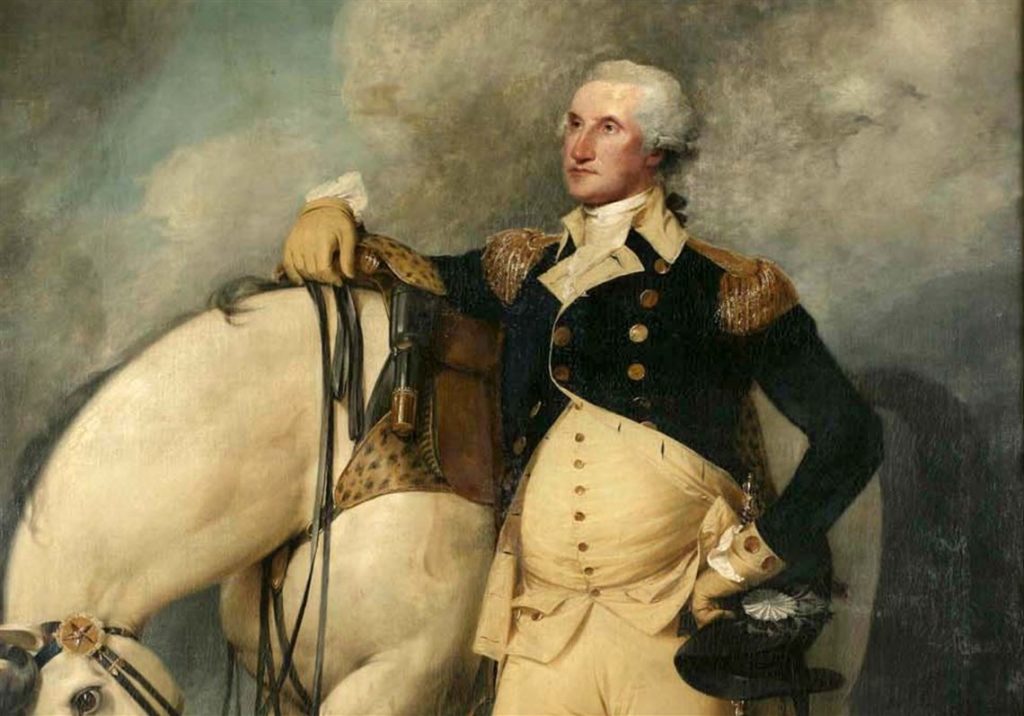Can you guess what these three quotes from great leaders have in common?
- “If you’re going through hell, keep going.” – Winston Churchill
- “Be the change you wish to see in the world.” – Mahatma Gandhi
- “The harder the conflict, the greater the triumph.” – George Washington
All three are succinct, inspirational, and look great on a bumper sticker.
And all three were never said or written by the person to whom they are attributed.
Spurious quotations are nothing new, especially in the age of the Internet. They’re often motivational or profound, and the words often reinforce our idea of who the speaker was.
This is especially true of George Washington. While he never said any of these quotes, they sound like something he might have said:
- “I cannot tell a lie.”
- “These are the times that try men’s souls.”
- “The peaceful transition of power is what will separate this country from every other country in the world.”
Two Types of Misquotes
Looking at the short list above, you may notice that Washington misquotes often fall into two categories: quotes that are entirely fabricated, and quotes that were said by someone else.
Washington is commonly misattributed as the speaker of words written by other founders, including Benjamin Franklin, Thomas Jefferson, and Thomas Paine. Paine’s “Common Sense” and “The American Crisis” pamphlets are full of words often misattributed to Washington.
It’s an easy mistake to make, and there’s no underlying motivation.
The more interesting misquotes, perhaps, are the one invented from whole cloth. “When you look at the public record of what Washington said, he actually said very little,” says Adrienne Harrison, PhD, senior historian at Battlefield Leadership and a former assistant professor of American history at the United States Military Academy. “He didn’t publish books. He didn’t make long speeches. His farewell address is probably the most public document quoted correctly, and he didn’t actually deliver it publicly—it was printed. That makes him ripe for putting words in his mouth.”
Washington On the Record
Fake Washington quotes may come from a desire to link the idea in the quote with Washington’s status as an American hero and the father of our country.
“People often want him to have said things that he didn’t,” Harrison explains. “For example, there are quite a few Washington quotes about the Second Amendment or about firearms that are made up, or that have parts of the quote removed.”
It’s a common problem. For instance, Washington never said or wrote any of the following:
- “When government takes away citizens’ right to bear arms it becomes citizens’ duty to take away government’s right to govern.”
- “When a nation mistrusts its citizens with guns it is it sending a clear message. It no longer trusts its citizens because such a government has evil plans.”
- “Firearms stand next in importance to the Constitution itself. They are the American people’s liberty, teeth and keystone under independence.”
- “A free people ought not only be armed and disciplined, but they should have sufficient arms and ammunition to maintain a status of independence from any who might attempt to abuse them, which would include their own government.”
All but one of these quotes can’t be found in any of Washington’s writings, including personal correspondence. The last quote is a manipulated version of a quote taken from Washington’s First Annual Message to Congress on the State of the Union. This is the actual text:
“A free people ought not only to be armed, but disciplined; to which end a uniform and well-digested plan is requisite; and their safety and interest require that they should promote such manufactories as tend to render them independent of others for essential, particularly military, supplies.”
Harrison says that Washington’s thoughts on the right to bear arms are few and far between. It’s also hard to guess how he would view our 21st-century interpretations of the Second Amendment since our firearms didn’t exist in his day.
“The scariest mass killing in Washington’s day was an Indian massacre,” Harrison says. “And Washington didn’t say anything on the record about the Second Amendment. In fact, he was one of the loudest voices calling for the Constitutional Convention when Shay’s Rebellion broke out. He wanted a strong central government that would prevent that kind of thing.”
Not all fabricated quotes are about firearms, of course. Others relate to religion, Washington’s mother, and his famed inability to tell a lie, which comes from the Parson Mason Weems’ biography of George as a young man. The more these falsehoods circulate, the less we understand Washington as a complete person.
“Unfortunately, Washington often seems more like a myth than a three-dimensional, living, breathing person,” Harrison says. “People need to realize he was real, not a mythical creature descended from the gods.”
Check Before You Share
Washington enjoyed his mythological status at the end of his life, but he likely wouldn’t have enjoyed made-up quotes in his name, Harrison says. “You have to be careful about cherry-picking or sharing a quote that’s completely made up,” she says. “Washington himself wouldn’t have been in favor of that.”
Before sharing a George Washington quote online, run a quick Google search of the words and make sure Washington — and not another Founder — actually said them. You may also want to check this list of Spurious Quotations compiled by Mount Vernon.


